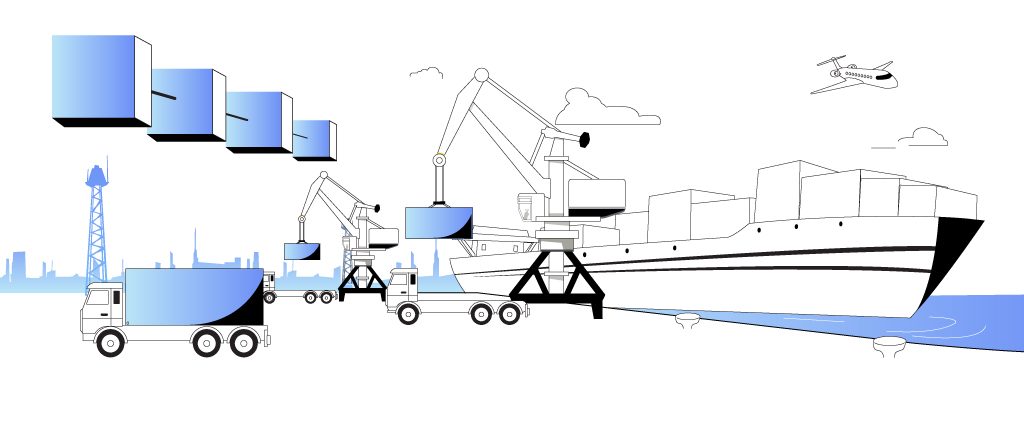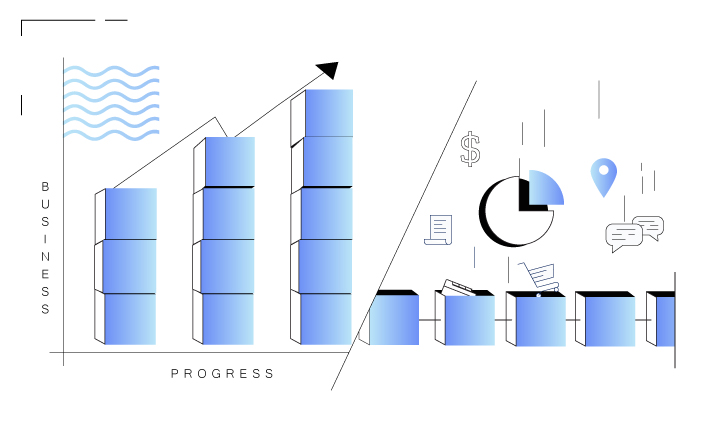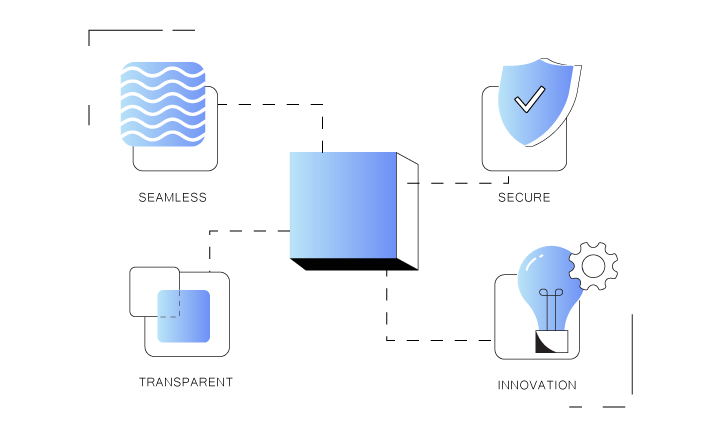How is Blockchain transforming Supply Chain?
March 19, 2020

The product life cycle is an intriguing journey to understand. So the next time when you’re visiting the supermarket to buy something, do spend some time thinking of the complete product lifecycle, what all was involved in making the product reach your hands. You would want to take a backseat and reflect on how do all the raw materials came from, who transported all the raw material to the production. How was the product created in the plant and eventually to packaging? How did the product reach the very shop where it is available for consumer sales?
When we talk about the supply chain, we think about the complex management that all the links and hub points plus distributing are a complicated seamless process to achieve.
This process spans hundreds of steps, over vast geo locations, both local and across borders, not to forget the pile of physical payment receipts and paper works, documents, plus the numerous units. Today’s supply chain industry involves a lot more complexity and lacks transparency. Due to this, there are lofty hopes when Blockchain gets to transform the current process in the supply chain industry.
“No matter what product is involved in the chain, be it goods, foods, digital products, or any other tangible offerings, supply chains have to make the process smooth.”
What is broken? Does blockchain have any unique attributes that could help? Today we are answering the questions here.
Bringing to you a few examples of how blockchain is already impacting supply chains and how is the current supply chain incapacitated.
Going back in time when supply chains were way simpler because commerce was just happening locally, unlike today. Today when the industry has spread so much more, beyond borders, the situation has elevated to an incredibly complex position; demanding major innovation. Hence the introduction of the shifting to haul freight via trucks rather than rail, followed by the emergence of personal computers in the 1980s that led to a dramatic shift in the supply chain management system.
“The worst blocker in the supply chain industry, building big problems, is FRICTION.”
This rise in discord makes it very difficult for all supply chains to work well. To handle this, the suppliers, the providers, and the clients must communicate via central third-party entities, instead of keeping direct communication because this will only turn a simple step into a complicated and lengthy, multi-step procedure.
Today when the manufacturing industry is globalized, and a huge chunk of this is covered by countries across borders, the supply chain system has become very heavy with its own complexity. For the same complexity, it has become terribly difficult for buyers to know the real value of products, thanks to the lack of transparency in our current process. In a similar way, it’s extremely difficult to investigate supply chains when there is speculation of illicit or unauthorized practices. The current process hence is highly inefficient for industries as it is very difficult to maintain a seamless process between the vendor and supplier.
So, there are two things that impact Supply Chain Management in traditional ways:

- Supply chains are critical for securely and seamlessly managing the health of business flow.
- And the introduction on Blockchain is because the current system of supply chains is outdated and requires a significant reboot.
This is where the blockchain comes in.

What is Blockchain?
A blockchain is an immutable record that is time-stamped, managed by a cluster (computer) and not owned by any single entity.
Blockchain is a secured and connected technology, thanks to cryptographic principles.
Today we present to you, the three properties of Blockchain Technology:
- Decentralization
- Immutable
- Transparency
How blockchain helps supply chain?
Blockchain is a distributed digital ledger system that has multiple applications that can make any exchange, agreements or contracts for any tracking or payment system.
All these transactions are recorded in a block, through multiple copies that are distributed over many computers essentially called nodes making it highly transparent. At the same time Blockchain is also highly secure, extremely efficient and scalable, we can say this because each and each and every block is linked to the one before it and also the one after it.
This ultimately makes Blockchain the best solution that can effectively increase seamlessness, efficiency, security, and transparency of the management of the supply chain. The built-in chain of commands makes the process very much simpler right from warehousing materials to delivery and then payment.
Here is how Blockchain is improving the Supply Chain process:

- Making a record of the assets transferred as they move between supply chain nodes.
- It tracks the purchase orders, receipts, shipment needful, and all other supply chain documents.
- Verifying or assisting third-party verification for certifications of properties of the products.
- Tagging each product to numbers or bar codes, digital tags to identify seamlessly.
- Securely share information on the manufacturing process, product assembly, delivery process, and the maintenance of products.
- The complete process is very transparent because documenting a product’s journey across the supply chain increases trust.
- The process has better scalability than before.
- Enhanced security required by internal systems and processes.
Our final thought:
In this era of digital expanse, companies are taking up the agile shipping process, uncovering ways to leverage improvements to increase profits and improved links across the blockchain-enabled supply chain. Companies are also partnering with state-of-the-art service providers acknowledging the value of security, seamlessness, transparency, and innovation, exploring blockchain’s ultimate potential.
Keep reading about
LEAVE A COMMENT
We really appreciate your interest in our ideas. Feel free to share anything that comes to your mind.




